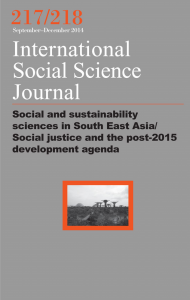Radicalization: Interview with Kevin McDonald
In his recent book, Radicalization (Polity, 2018) Kevin McDonald unpicks the term radicalization, showing that this term is little understood, and is problematic in that it does not articulate the very different experiences of those involved. New violent actors, whether they travelled to Syria or killed at home, range from former drug dealers and gang members, to students and professionals, schoolgirls, and mothers with young children. The book sets out to explore radicalization not as something done to people, but...




















